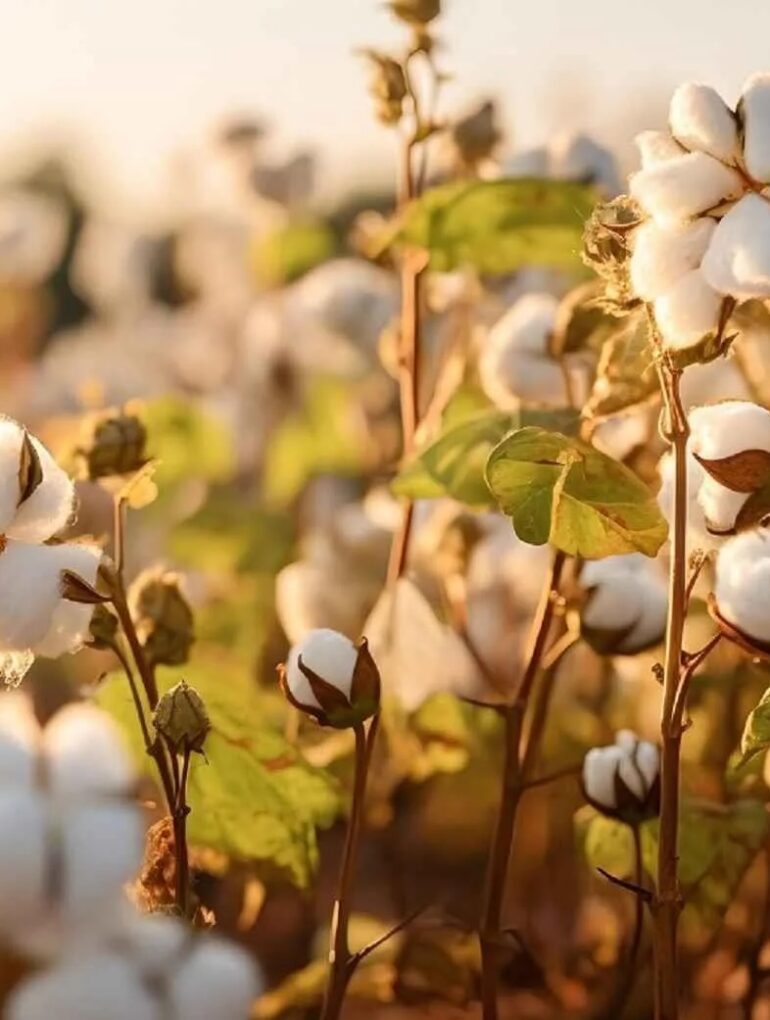A report links businesses supplying companies including Zara-owner Inditex, H&M Group, Gap Inc. and Amazon to incidents of forced labor and debt bondage.
When we hear the word “fashion,” we’re most likely to think about statuesque models strutting down the runway wearing only the trendiest of outfits by the most celebrated designers. But as in most things, the world of fashion, often associated with all things glamorous or trendy, has a dark side.
There’s the controversy surrounding cotton from China’s Xinjiang, for instance, which primarily revolves around allegations of forced labor involving the Uyghur ethnic minority and other Muslim populations in the region. Following intense public outcry and sanctions imposed by countries such as the US, UK, and EU, major Western brands like H&M, Nike, and Uniqlo have distanced themselves from Xinjiang-sourced products.
More recently, a report released last Jan. 7 alleges that some of the best-known global apparel brands procured cotton grown on Indian farms that employ child and bonded laborers. The investigation by the New York-based rights group Transparentem looked into the working conditions on 90 cotton farms in the Indian state of Madhya Pradesh and included interviews with more than 200 farm workers and owners from June 2022 to March 2023. India is the world’s second largest producer of cotton after China.
Related story: Prada promotes sustainability through ocean literacy, regenerated nylon
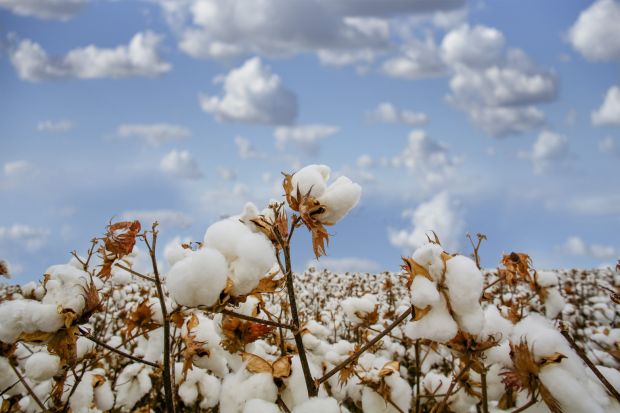
The report, titled From Field to Fabric: Enhancing Due Diligence in Cotton Supply Chains, revealed “troubling practices,” including the widespread use of child labour, debt bondage, abusive working conditions, and other indicators of forced labor. The report added that the “grave abuses” “appear to be endemic to the region” and likely extended to other farms in the area.
Apart from these labor concerns, the investigation uncovered probable issues related to the “organic integrity of the cotton produced on farms connected to the supply chain of Pratibha Syntex.” Pratibha Syntex, which claims to be India’s largest sustainable apparel manufacturer, works with thousands of farmers growing cotton promoted under organic and ethical standards. Among its customers are some of the world’s largest brands like Zara-owner Inditex, H&M Group, Gap Inc., and Amazon.
Aside from Pratibha Syntex, Transparentem also reviewed “company and shipping documents to connect the growers to and two other large apparel producers, Remei Group and Maral Overseas—and through them to the supply chains of 60 major Western brands.” It is important to note, however, that the violations observed were not found across all farms connected to the supply chains of the three suppliers; some were identified only on farms associated with one or two suppliers.
The POST summarizes here the key findings of Transparentem’s report which paints a bleak picture of cotton farming in the South Asian nation.
Related story: A long overdue shift: Secondhand fashion takes on London Fashion Week’s runways
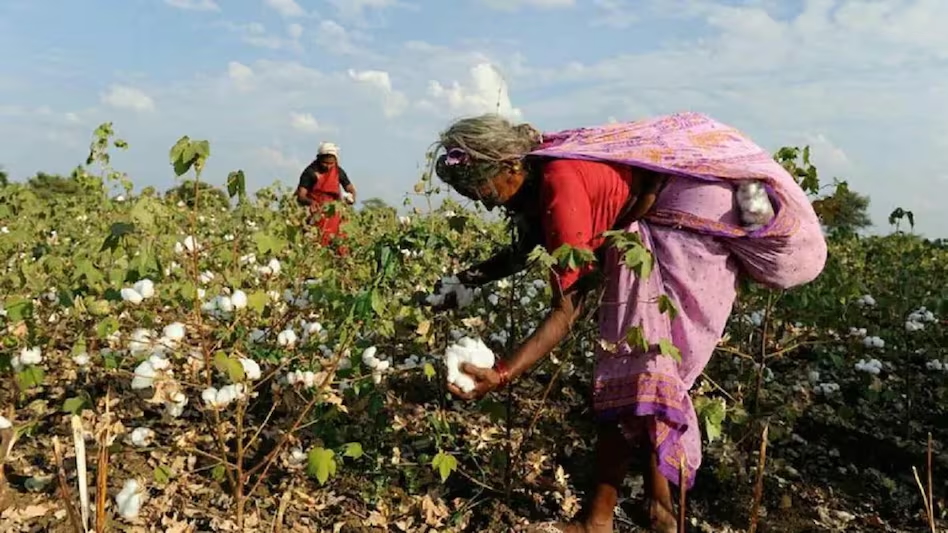
Child labor and pesticide exposure
Transparentem investigators documented numerous cases of children as young as six years old working on cotton farms. Under Indian law, children under 14 are prohibited from working in most situations, while those between 14 and 18 are prohibited from being employed in hazardous occupations.
Some children were also observed working alongside their parents to repay family debts, causing them to miss school. To make things worse, it was also revealed that some children and adolescents were exposed to health risks from handling or being exposed to pesticides. This caused several of them to experience health issues such as respiratory problems, nausea, and skin irritation.
On one farm, a 13-year-old said in an interview that the itching she experienced after exposure was so bad that her father had to take her to the hospital. On another, the mother of an 11-year-old said her daughter sometimes vomited from the fumes.
The report’s findings underscored how poverty forces many children to miss or abandon school to support their families, perpetuating the vicious cycle. It added that adult workers expressed concerns about their children’s futures, acknowledging the importance of education but feeling trapped by financial constraints—a reflection of broader issues in rural, low-wage economies.
Related story: The past and future collide in Rakuten Tokyo Fashion Week
Debt bondage
Debt bondage was also observed by the investigators. The International Labor Organization or ILO considers debt bondage one of the indicators of forced labor, while the United Nations describes the practice similar to slavery.
Per the report, making advance payments or loans is a customary method cotton farm owners use to secure labor for the entire season. In many cases, however, these arrangements bind workers to employers for unspecified and long periods. One worker even said it could take two to three years to repay a debt. On top of this, some employers charge workers high interest rates which can keep them from repaying their debts on time, putting them even more at risk of becoming trapped in a vicious cycle of debt.
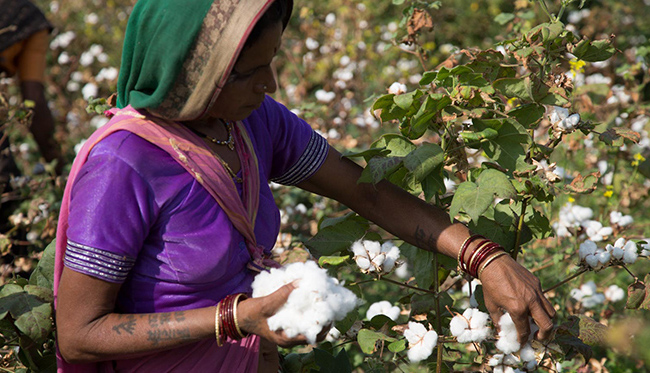
Wage violations
Transparentem discovered that workers were often paid low, and even unpredictable wages, that are below the legal minimum. This leaves them vulnerable to forced labor and further limits their ability to escape debt. Using World Bank data, the report estimated that workers earning the state’s minimum wage may have still lived in poverty, as their income was insufficient for an average-sized family to rise above the poverty line. Some of them might have even experienced extreme poverty.
Several workers from three different farms that sold raw cotton to ginning mills that supplied cotton bales to Maral Overseas said that the farm owner sometimes withheld their wages for “unpredictable amounts of time.” Withholding wages can force workers to remain working for their employer while they wait to receive what they are due.
Related story: Japanese label CFCL’s S/S 2025 collection shows us that sustainable can be stylish, too
Abusive working conditions and health hazards
Workers reported abusive treatment. The interviews revealed how some farm owners shouted and threatened to send them home without paying them their full wages if they “made mistakes, arrived late, worked too slow, or sat down.”
Many workers toiled in extreme heat for hours, putting them at risk of heat stroke and exhaustion. Despite having access to drinking water on the farm, reports by the Indian government and media suggest that safety concerns related to a lack of proper toilet facilities often compel women to avoid drinking enough water while at work, putting them at risk of dehydration. Transparentem’s investigation also found that none of the farms connected to the supply chains of the three suppliers had bathrooms.
Moreover, investigators observed inadequate protective gear and exposure to hazardous pesticides among adult workers. Transparentem’s investigation highlighted that hazardous working conditions and lack of safety measures were consistent issues on cotton farms, placing the health and well-being of workers, particularly children, at considerable risk.

Issues with the integrity of “organic cotton”
Transparentem’s investigation likewise revealed potential issues with the integrity of organic cotton in Pratibha Syntex’s supply chain and the Vasudha Swaraj program. There’s evidence suggesting that genetically modified seeds and synthetic pesticides may have been used, and organic cotton might have been mixed with conventional varieties.
For their part, Pratibha Syntex asserted that it upholds organic integrity through strict procedures and monitoring, with Vasudha Swaraj inspecting over 16,000 farms twice annually and downgrading non-compliant farms. Transparentem recommended that Pratibha Syntex, Vasudha Swaraj, and their buyers investigate these concerns further and remediate them if confirmed.
The investigators did not find evidence of organic integrity concerns on investigated farms connected to the supply chain of Remei India.
Related story: Germanier turns waste into vibrant extravaganza at Paris Fashion Week
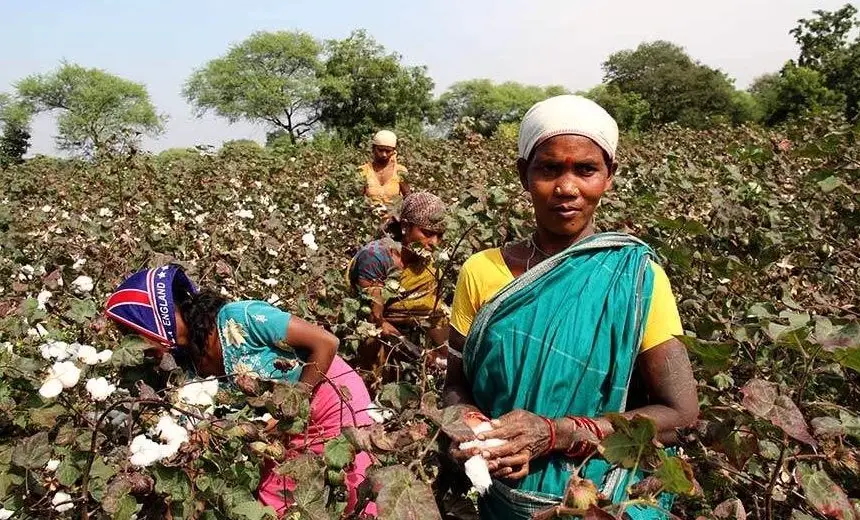
Call to action
In late 2023, Transparentem reached out to 60 international buyers and the three investigated suppliers to present the findings and provide recommendations. Per the report, several of the companies were already participating in cotton-sourcing initiatives focused on labor issues, organic production, and/or traceability. Most of the buyers contacted, however, had not fully traced their supply chain to the cotton farm level. This lack of visibility inhibits due diligence in this high-risk sector.
Following the results of the investigation, Transparentem urges buyers and suppliers to take responsibility “across all tiers of their supply chains.” Furthermore, it underscores the need for stronger verification processes and adherence to organic standards down to the raw material level.
Despite the bleak results of the report, Transparentem is “encouraged by efforts from some buyers and suppliers and acknowledges the potential challenges to addressing systemic issues identified in the investigation.” However, it notes how progress remains “too slow,” causing many workers to remain in dire situations.
“All companies sourcing from this region must act to eliminate child labor, forced labor, and other abuses,” it says. “Together, these efforts can transform Madhya Pradesh into a preferred ethical sourcing region.”
You can access the full report here.
Related story: This sustainable shoe brand is reshaping how fashion collaborates with farmers, weavers and designers
Related story: Southeast Asian countries top global intake of microplastics. What does this mean to our health?

